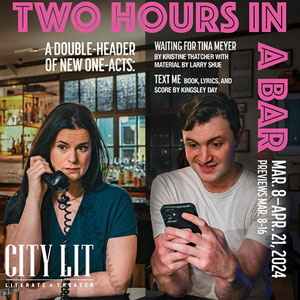
 ***** “Two Hours in a Bar” is a sweet, funny, and kind comedy with no violence, no drama, and no preaching to the audience. It’s just a fun performance of two new one-act plays, both of which are set in a bar. The world premiere of Kristine Thatcher’s play (with material by Larry Shue) is followed by the world premiere of Kingsley Day’s musical. Underlying both is the premise of meeting a very special someone whom one has never met before.
***** “Two Hours in a Bar” is a sweet, funny, and kind comedy with no violence, no drama, and no preaching to the audience. It’s just a fun performance of two new one-act plays, both of which are set in a bar. The world premiere of Kristine Thatcher’s play (with material by Larry Shue) is followed by the world premiere of Kingsley Day’s musical. Underlying both is the premise of meeting a very special someone whom one has never met before.
The first play “Waiting for Tina Meyer” is set in 1984. Robert Morgan (Freddy Mauricico) and his friend and colleague Walter (Jimmy Hogan) star in a musical Shakespeare group that is touring the United States. They are in New Jersey for only a short time. Walter would have preferred to go to a “happening place” and meet up with these two female mud wrestlers after their performance and celebrate New Year’s Eve with them. But Bob, reluctant to date since his wife died, has other ideas. He has dragged Walter to Finnigan’s Bar so that he could meet a woman who slipped a note to him earlier that evening. Apparently, what she wrote made her sound as if she would be a good match for him. The name on the note is Tina Meyer. He was supposed to meet her at a theatre lobby and possibly move on to Finnegan’s Bar. Since Bob never went to the lobby in the first place, Walter believes that he and Tina will never connect. Throughout the entire show, Bob and Walter wait for Tina, while Bob grouses that they have turned down a “sure thing” with the mud wrestlers.
Much of the play depicts the interaction between Walter and Bob as well as with Robin, the barkeep (Kat Evans), whom Walter is constantly arguing with; she reminds him of his ex-wife. Then too, there is Carl, the bar’s piano player (Shraman Ghosh), and an elderly woman (Marssie Mencotti), who is a regular at the bar. Mencotti is a breath of fresh air. She comes off as extremely natural, as if a woman from the audience has decided to come up on stage and participate in the show. There is also a musical act featuring Walter and Bob as they recreate Shakespeare’s “Richard III” for those at the bar. Their dance number is comical and amusing, thanks to choreography by Britta Lynn Schlicht.
This play is largely made up of group conversations. The plot starts out slowly but evolves. There is an unexpected twist at the end that I will not reveal….
The second play is a musical set in 2024 called “Text Me”, with the book, music, and lyrics by Kingsley Day. Ian (Jimmy Hogan) is a gay man who has been texting his romantic interest Gabriel for the last month. It looks as if they will finally meet at the Tenth Street Bar, and Ian is very excited about the meeting. He brings along his friend Carol (Kat Evans) for reassurance. She sits at the next table and has been instructed to phone Ian sometime after he meets Gabe. If the date isn’t working out, he will secretly let her know and then come up with some excuse to leave. Ian is very hopeful, however, that his date will go well. But, among other things, Carol reminds Ian of all of the bad dates he has had in the past; the texts between them are done via song. And while Ian waits for Gabe to get back to him, Carol communicates with her husband: It turns out that their relationship may actually not be as great and wonderful as the platonic one between her and her gay male friend. Since Ian and Carol communicate with each other via text rather than through an actual conversation, neither the waiter (Freddy Mauricio) nor the bar’s manager Diane (Marssie Mencotti) realize that the two of them know each other.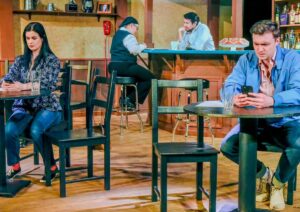
As with the first play, there is a plot twist at the end that I will not reveal…. That being said, I happened to guess the ending early on (although my guest didn’t). Having this suspicion did not detract one iota from my enjoyable experience, because the script and the songs are so brilliantly crafted! The lyrics to all eight songs are fun, light, and cute, and the melodies are lovingly written. Many of them belie what can go wrong on a bad date or in a relationship with someone who is either drunk or unethical or a criminal or some other form of sleaze. Plus Hogan is an incredible vocalist, and the blend with Evans is terrific! As with the first play, Ghosh accompanies the singers on the piano, now from behind the scenes. He also plays another texter and serves as the music director for the entire production.
Set design by Ray Toler features a bar that is perfect for both shows. There is just enough variety in the foreground, middle ground, and background to create a blank canvas for director Terry McCabe to work his magic on. Prop design could not have been better. The “Happy New Year” banner is prominent in the first play as is the Irish flag. After a prop change during intermission, a slightly more modern-looking establishment is the result. Lighting is especially extraordinary in the second play. The strong blue lights and spotlights indicate how the two main characters are enveloped in their texts, their own heads, and the bubbles they create for themselves. This is compared to the flat lighting when they are being social and occasionally communicate with the waiter. Costumes by Andres Mota are appropriate for both eras. I was especially grateful for the “Textspeak Glossary” in our program that allows us who might be unfamiliar with modern texting terms to catch up on the lingo.
“Waiting for Tina Meyer” has been revived after forty years in this brand new full stage production; whereas “Text Me” was a commissioned work, which “had to have the same cast breakdown…” as its forerunner. Yet both are about seeking love and romance and exploring a new relationship. While the first does so in more conventional way with handwritten notes and personal introductions (and no cell phones), the second focuses on online dating. Both approaches have their plusses and minuses. In 1984, a bar was considered the primary place to meet potential romantic partners; today not so much: Young people typically meet online first. With the wonders of 21st century technology, we can literally sit next to each other in a bar or restaurant—or in an audience—and be on our phones without having to interact physically with others or pay attention to their presence. Technology, as we all know, can be a blessing and a curse.
This is the type of show that will take your mind off all the world’s problems for two hours (including an intermission). And in this day and age, that’s a great compliment to the playwrights and the director!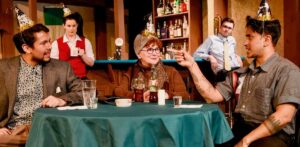
“Two Hours in a Bar” is playing through April 21, 2024, at City Lit Theater, 1020 W. Bryn Mawr Avenue, in Chicago, on the second floor of the Edgewater Presbyterian Church.
General admission tickets – $34
Seniors – $29
Students and military – $12
Performance schedule:
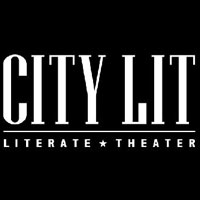 Fridays and Saturdays – 7:30 p.m.
Fridays and Saturdays – 7:30 p.m.
Sundays – 3:00 p.m.
Mondays, April 1, 8, and 15 at 7:30 p.m.
No performance Easter Sunday, March 31st.
For more information and to purchase tickets, visit https://www.citylit.org/ or call 773-293-3682.
To see what others are saying, visit www.theatreinchicago.com, go to Review Round-Up and click at “Two Hours in a Bar”.



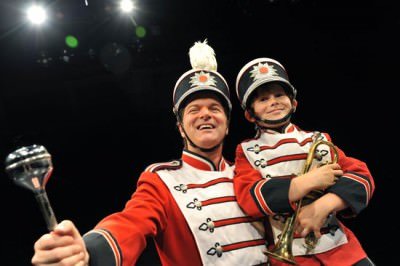
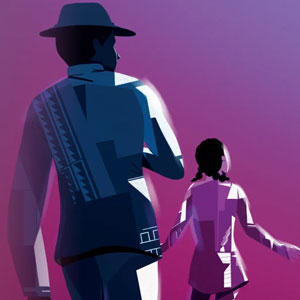
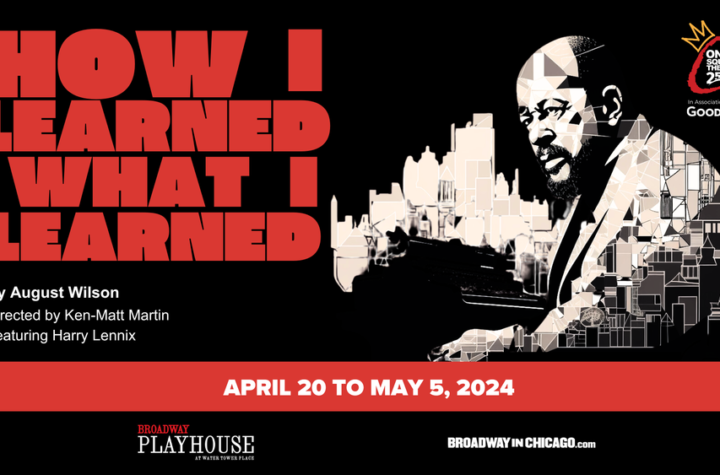
More Stories
“Barefoot in the Park”
“Joe Turner’s Come and Gone”
“How I Learned What I Learned” reviewed by Julia W. Rath